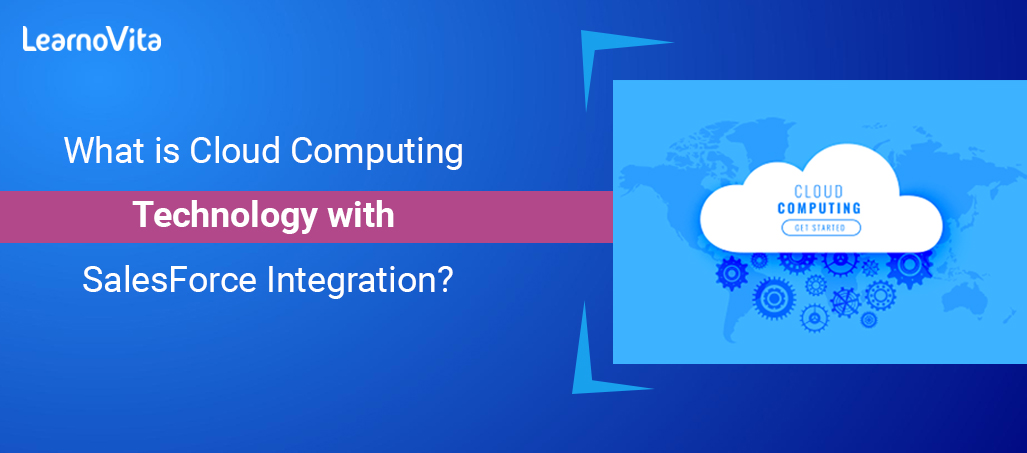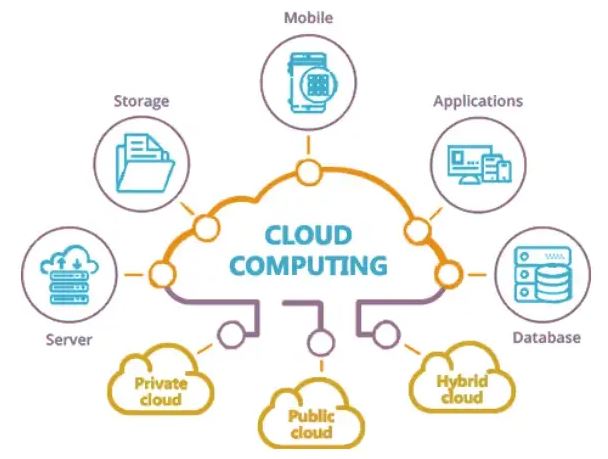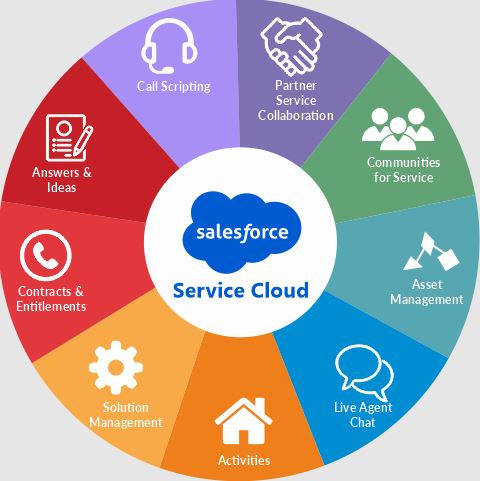- Difference between Waterfall approach and Agile approach
- CCIE Certification Cost in India
- What is IOT? | Know about IOT Application
- How to install Jenkins on Ubuntu? : A Complete Guide
- What is AWS Instance Types? : A Complete Guide
- VMware Site Recovery Manager : Know all about it
- What is Big Engineering? | Know about the salary
- What is Data Model in Salesforce ?
- Splunk architecture| Know from the basics [ OverView ]
- What is Azure Arc? | Integration Guide | A Complete Guide with Best Practices
- Introduction To Docker Networking: Advantages and Working | Everything You Need to Know
- Introduction to Azure ASR-enabled servers | All you need to know [ OverView ]
- Create Alarms in Amazon CloudWatch | Integration Guide | A Complete Guide with Best Practices
- What’s AWS VPC? Amazon Virtual Private Cloud Explained | A Complete Guide with Best Practices
- What Makes the Difference between Containers Vs Virtual Machines | All you need to know [ OverView ]
- What is a CDN? | How Do Content Delivery Networks Work | A Complete Guide with Best Practices
- Top Real World Applications of Cloud Computing | A Complete Guide with Best Practices
- What to Expect AWS Reinvent Reinforces the Growth of Cloud Computing|All you need to know [ OverView ]
- What is Cloud Computing Technology with SalesForce Integration | How its Work [ OverView ]
- Kubernetes vs Docker Swarm | What’s the Difference and Which Should You Learn?
- Big Data vs Data Warehouse | Know Their Differences and Which Should You Learn?
- Public Cloud vs Private Cloud | Know Their Differences and Which Should You Learn?
- Red Hat Certification Path: A Complete Guide For Beginners with Best Practices
- An Overview of AWS SDK and Toolkit | A Complete Guide with Best Practices
- An Overview of MuleSoft Anypoint | Benefits and Special Features | A Definitive Guide with Best Practices
- What is Amazon Elastic Load Balancer? : Benefits and Special Features with REAL-TIME Examples
- What is AWS Console ? : A Complete Guide with Best Practices
- Microsoft Azure Application Gateway | Step-By-Step Process with REAL-TIME Examples
- A Definitive Guide for Azure Automation | Benefits and Special Features
- Azure ExpressRoute | Everything You Need to Know | Expert’s Top Picks
- What is Hybrid Cloud? | Everything You Need to Know | Expert’s Top Picks
- A Complete Citrix Certification Path | A Complete Guide For Beginners [ OverView ]
- What is Azure Active Directory B2C ? : Step-By-Step Process with REAL-TIME Examples
- What is Azure DNS ? Azure DNS – Azure Domain Name System | REAL-TIME Examples
- Top AWS Statistics | Everything You Need to Know | Expert’s Top Picks
- Docker Swarm Architecture | Everything You Need to Know [ OverView ]
- What is Dell Boomi? | Everything You Need to Know [ OverView ]
- Cloud Architect Salary in India | All you need to know [ For Freshers and Experience ]
- What Is Multitenancy ? : Characteristics , Features , Benefits | All you need to know [ OverView ]
- What Is the Recommended List of AWS Whitepapers? | Expert’s Top Picks
- OSCP vs CEH | Difference You Should Know
- Openshift vs Kubernetes | Difference You Should Know
- AWS Cloud Practitioner and Required Skills | Expert’s Top Picks
- CRISC Certification and Benefits | A Complete Guide with Best Practices
- Kali vs Parrot | Difference You Should Know
- How to Install Docker on Ubuntu | Comprehensive Guide
- AWS Certification Cost and Types of Exams [ Job & Future ]
- What is the Average AWS Solutions Architect Salary?
- Reasons to Take up A Cloud Computing Certification
- What is Cloud Databases
- What is Cloud Computing Architecture?
- AWS vs Azure vs Google Cloud
- Top AWS Services
- Advantages and Disadvantages of Cloud Computing
- Cloud Computing 2020: An Analysis Of Cisco’s Cloud Index Survey, 2016
- What Are The Fundamental Microsoft Cloud Services That Are In Demand?
- What are the Issues in cloud computing?
- Top Important Cloud Computing Terms
- From Developer to AWS Cloud Specialist – The AWS Certification Learning Paths
- Why and How to Pursue a Career in AWS?
- The Top In-demand cloud skills for 2020
- Edge Computing Vs. Cloud Computing
- Top 10 Reasons to Learn AWS
- Cloud Computing Career Guide
- What does a AWS solution architect do?
- AWS Career Guide
- VMware vSphere best practices
- The AWS Engineer: Job Roles, Salaries And the Career Path
- What Is Microsoft Azure in Cloud Computing?
- How to Become an Azure Developer?
- Citrix Xenserver Vs Vmware vSphere
- Microsoft’s Project Olympus Delivers Cloud Hardware
- The Future of Cloud Computing
- Why Cloud Computing Is Essential to Your Organization?
- Amazon Web Services – WorkMail
- What is AWS?
- AWS Vs OpenStack
- AWS Certification Path
- AWS ElasticSearch
- AWS EC2 Instance Types
- Microsoft Azure Portal
- AWS Vs Azure
- Amazon Web Services WorkSpaces
- What is AWS Management Console?
- Difference between Waterfall approach and Agile approach
- CCIE Certification Cost in India
- What is IOT? | Know about IOT Application
- How to install Jenkins on Ubuntu? : A Complete Guide
- What is AWS Instance Types? : A Complete Guide
- VMware Site Recovery Manager : Know all about it
- What is Big Engineering? | Know about the salary
- What is Data Model in Salesforce ?
- Splunk architecture| Know from the basics [ OverView ]
- What is Azure Arc? | Integration Guide | A Complete Guide with Best Practices
- Introduction To Docker Networking: Advantages and Working | Everything You Need to Know
- Introduction to Azure ASR-enabled servers | All you need to know [ OverView ]
- Create Alarms in Amazon CloudWatch | Integration Guide | A Complete Guide with Best Practices
- What’s AWS VPC? Amazon Virtual Private Cloud Explained | A Complete Guide with Best Practices
- What Makes the Difference between Containers Vs Virtual Machines | All you need to know [ OverView ]
- What is a CDN? | How Do Content Delivery Networks Work | A Complete Guide with Best Practices
- Top Real World Applications of Cloud Computing | A Complete Guide with Best Practices
- What to Expect AWS Reinvent Reinforces the Growth of Cloud Computing|All you need to know [ OverView ]
- What is Cloud Computing Technology with SalesForce Integration | How its Work [ OverView ]
- Kubernetes vs Docker Swarm | What’s the Difference and Which Should You Learn?
- Big Data vs Data Warehouse | Know Their Differences and Which Should You Learn?
- Public Cloud vs Private Cloud | Know Their Differences and Which Should You Learn?
- Red Hat Certification Path: A Complete Guide For Beginners with Best Practices
- An Overview of AWS SDK and Toolkit | A Complete Guide with Best Practices
- An Overview of MuleSoft Anypoint | Benefits and Special Features | A Definitive Guide with Best Practices
- What is Amazon Elastic Load Balancer? : Benefits and Special Features with REAL-TIME Examples
- What is AWS Console ? : A Complete Guide with Best Practices
- Microsoft Azure Application Gateway | Step-By-Step Process with REAL-TIME Examples
- A Definitive Guide for Azure Automation | Benefits and Special Features
- Azure ExpressRoute | Everything You Need to Know | Expert’s Top Picks
- What is Hybrid Cloud? | Everything You Need to Know | Expert’s Top Picks
- A Complete Citrix Certification Path | A Complete Guide For Beginners [ OverView ]
- What is Azure Active Directory B2C ? : Step-By-Step Process with REAL-TIME Examples
- What is Azure DNS ? Azure DNS – Azure Domain Name System | REAL-TIME Examples
- Top AWS Statistics | Everything You Need to Know | Expert’s Top Picks
- Docker Swarm Architecture | Everything You Need to Know [ OverView ]
- What is Dell Boomi? | Everything You Need to Know [ OverView ]
- Cloud Architect Salary in India | All you need to know [ For Freshers and Experience ]
- What Is Multitenancy ? : Characteristics , Features , Benefits | All you need to know [ OverView ]
- What Is the Recommended List of AWS Whitepapers? | Expert’s Top Picks
- OSCP vs CEH | Difference You Should Know
- Openshift vs Kubernetes | Difference You Should Know
- AWS Cloud Practitioner and Required Skills | Expert’s Top Picks
- CRISC Certification and Benefits | A Complete Guide with Best Practices
- Kali vs Parrot | Difference You Should Know
- How to Install Docker on Ubuntu | Comprehensive Guide
- AWS Certification Cost and Types of Exams [ Job & Future ]
- What is the Average AWS Solutions Architect Salary?
- Reasons to Take up A Cloud Computing Certification
- What is Cloud Databases
- What is Cloud Computing Architecture?
- AWS vs Azure vs Google Cloud
- Top AWS Services
- Advantages and Disadvantages of Cloud Computing
- Cloud Computing 2020: An Analysis Of Cisco’s Cloud Index Survey, 2016
- What Are The Fundamental Microsoft Cloud Services That Are In Demand?
- What are the Issues in cloud computing?
- Top Important Cloud Computing Terms
- From Developer to AWS Cloud Specialist – The AWS Certification Learning Paths
- Why and How to Pursue a Career in AWS?
- The Top In-demand cloud skills for 2020
- Edge Computing Vs. Cloud Computing
- Top 10 Reasons to Learn AWS
- Cloud Computing Career Guide
- What does a AWS solution architect do?
- AWS Career Guide
- VMware vSphere best practices
- The AWS Engineer: Job Roles, Salaries And the Career Path
- What Is Microsoft Azure in Cloud Computing?
- How to Become an Azure Developer?
- Citrix Xenserver Vs Vmware vSphere
- Microsoft’s Project Olympus Delivers Cloud Hardware
- The Future of Cloud Computing
- Why Cloud Computing Is Essential to Your Organization?
- Amazon Web Services – WorkMail
- What is AWS?
- AWS Vs OpenStack
- AWS Certification Path
- AWS ElasticSearch
- AWS EC2 Instance Types
- Microsoft Azure Portal
- AWS Vs Azure
- Amazon Web Services WorkSpaces
- What is AWS Management Console?

What is Cloud Computing Technology with SalesForce Integration | How its Work [ OverView ]
Last updated on 04th Nov 2022, Artciles, Blog, Cloud Computing
- In this article you will learn:
- 1.Introduction to Cloud Computing.
- 2.What is Salesforce?
- 3.Salesforce cloud services.
- 4.The Evolution of Cloud Computing.
- 5.Benefits of Salesforce.
- 6.Conclusion.
Introduction to Cloud Computing:
Moving closer to the cloud. Operating on the cloud. The data is kept in the cloud. Obtainable via the Cloud: Everything appears to be happening “in the cloud” these days. But what exactly is this hazy notion? The quick answer is that it’s somewhere on the other end of your Internet connection – a location where you can access apps and services and securely store your data. This makes the cloud an ideal location for running commercial software such as customer relationship management (CRM) systems – software that users require reliable access to at any time from any location and on any device.It requires no effort on your side to maintain or control.
What is Salesforce?
- Salesforce Inc. is a cloud computing and a social enterprise software-as-a-service (SaaS) provider are based in a San Francisco. Founded in March 1999 by former an Oracle executive Marc Benioff, Parker Harris, Dave Moellenhoff and Frank Dominguez tcompany started off as a customer relationship management (CRM) platform vendor.
- The main premise of behind the Salesforce is to deliver affordable CRM software as online service. Before a Salesforce, most companies hosted CRM software on their servers or be used local resources which required great deal of a time and financial investment.
- Salesforce provide a pay-as-you-go subscription model and houses all the data in a cloud which makes it simplyaccessible from any internet-connected device. Contact a Salesforce for a pricing information.

The Evolution of Cloud Computing:
The Internet was established in the 1960s, but it did not become relevant to businesses until the early 1990s. The World Wide Web was born in 1991, and in 1993, Mosaic, a web browser, was released, allowing users to view web pages that incorporated both visuals and text. This marked the start of the first company web pages, and unsurprisingly, the majority of these were tied to companies specialised in computing and technology. As Internet connections improved in speed and reliability, a new type of organisation known as an application service provider or ASP emerged. For a monthly charge ASP operated existing business programmes on computing software for its customers to access via the Internet.
Salesforce cloud services:
A Salesforce provides diverse portfolio of a products and services — from a CRM software and marketing and sales management options to an advanced analytics. Of cloud platforms and applications, company is best known for its a Salesforce CRM product which is composed of the Sales Cloud, Marketing Cloud, Service Cloud, Experience Cloud, Commerce Cloud and an Analytics Cloud.
Salesforce Sales Cloud: Enables a sales teams to focus on a sales components of CRM in addition to the customer support.
- Helps to track customer information and interactions in one place
- Automates a complex business processes
- Provides a pipeline and forecast management
- Helps to keep all an information up to date
- A nurtures leads and Helps to monitor the effectiveness of a marketing campaigns.
Salesforce Marketing Cloud: Combines all the marketing channels in one place and automates a marketing processes.
- Personalizes an email marketing at scale.
- Engages with the mobile messaging and mobile apps.
- Connects a social to marketing, sales and service.
- Helps to manage ad campaigns to increase the customer acquisition.
- Delivers a personalized and efficient web content.
- Automates an export of marketing data into the databases.
- Creates a one-to-one customer journeys across channels.
Salesforce Service Cloud: Provides fast artificial intelligence (AI)-driven customer service and also support experience to the customers and enables businesses to scale operations efficiently.
- Enables a service teams to communicate in a real time with customers through a Live Agent tool.
- Offers a seamless collaboration with the customers and faster query resolutions with an integration of Slack-First Customer 360.
- Enables a customers to reach across the multiple digital channels, including mobile messaging, AI-powered live chat, social media and email.
- Helps to set up a self-service center for the customers that includes communities and convenient options for a booking appointments, paying bills or checking account balances.
- Uses a omnichannel routing to automatically deliver the cases and leads to certain employees based on skill sets or availability.
- Helps to turn insights into the actions with a Salesforce Wave analytics app.
- Provides a comprehensive view of a workforce management including an order placement, delivery, scheduling, installation and tracking through a Salesforce Field Service option.

Salesforce Experience Cloud: Enables an organizations to create and connected digital experiences so they can expand their reach across a multiple digital channels while maintaining a brand identity. It was formerly known as a Community Cloud which only enabled users to build communities whereas an Experience Cloud enables users to create a mobile apps, landing pages, portals and help centers.
- Helps to deliver personalized content based on the customer’s expertise, interests or the other demographics.
- Enables a infusion of data from different digital experiences and a third-party platforms under one roof.
- Provides an endless customization options for the creating experiences. For example, Lightning App Builder enables a quick setup of a mobile responsive forms for a gathering customer information and feedback and Provides an options to recognize and reward active members of a community by dispatching scores ranks and recognition badges.
Salesforce Commerce Cloud: Unifies a way businesses engage with the customers over any channel. It offers suite of apps and software services that focus on a e-commerce business.
- Provides a personalized and engaging the shopping experience on websites
- Provides a highly relevant product recommendations to the customers through a Salesforce Einstein AI predictive intelligence platform
- Offers a real-time reports and dashboards for the analytics
- Enables a businesses to manage the digital commerce with integrated options for a commerce, point of sale and order management
- Helps to launch a new sites and create new customer experiences and Brings a stores online and integrates a partner technologies.
Benefits of Salesforce:
The following are a famous benefits of using a Salesforce:
- Time management.
- Increased revenue.
- Easy accessibility.
- Enhanced collaboration.
- Business scalability.
- Seamless integration.
- Trustworthy reporting.
Conclusion:
Salesforce is a cloud computing service that focuses on customer relationship management. Salesforce technology’s cloud platform is software as a service (SaaS). It aids in connecting with current and prospective customers and business partners. This technology allows for the effective maintenance of client connections as well as the acquisition of new customers.

